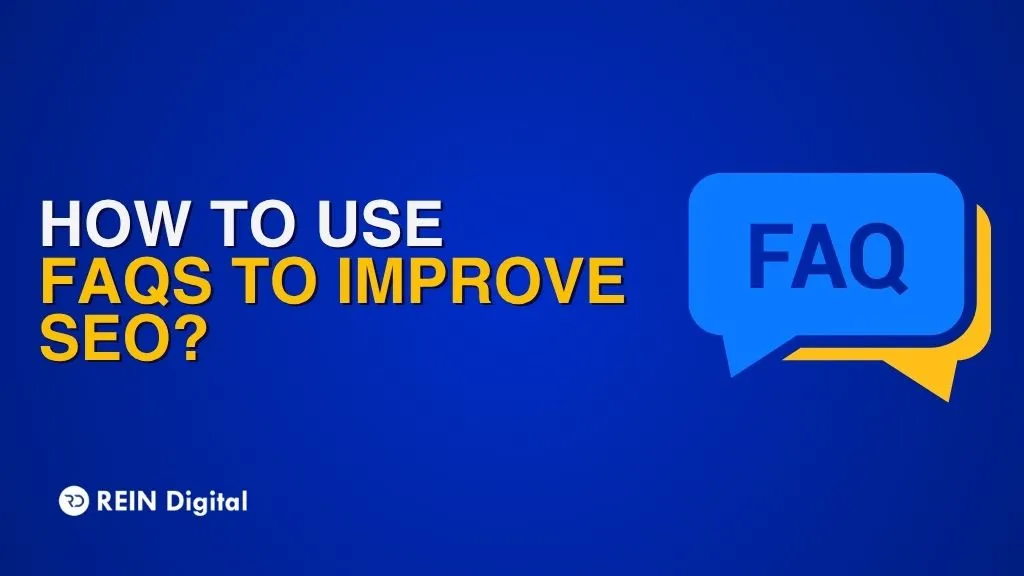
Have you ever had a feeling that your site content is screaming into a vacuum? You have developed beautiful blog posts with a well-optimised header and even used some strategic keywords, but still, you are not getting the kind of traffic that you wish. Enter FAQs, the secret weapon of your site that not only makes a search engine happy, but also serves a user with what he or she is looking for (and quickly).
Frequently Asked Questions (FAQs) should not be understood as an additional thought or space-filler on your landing page. When properly done, they act as mini search engine magnets, lower bounce rate, and increase the credibility of your brand. And the greatest bit of it? You have the chance of responding to the queries that your customers are already putting on Google. Doesn't it sound like it is a win-win?
Now, it is time to plunge into the way you can use FAQs to boost your SEO and ensure that your visitors keep clicking around, rather than scrolling back up the lonely one.
1. Why Search Engines Love FAQs (And You Should Too)
Why not pretend that you are Google? There is no such day or hour without somebody asking you questions: “How to cook pasta?” “Best time to visit Bali?” “Can cats eat cheese?” The task of Google is to locate the most topical, convenient, and user-friendly answers in a short period.
Once you have a properly built and essentially properly built means that your site has a series of frequently asked questions; a good FAQ portion; then your site presents Google with a silver platter of what it wants, namely, direct answers to particular questions. They are likely to be each of the questions users type (or speak) into search bars, so your FAQ content might end up in a rich snippet or a People Also Ask box, also known as the SEO jackpot.
In summary, the FAQs enhance the possibility of being featured in snippets and voice queries. And in SEO, that is akin to being summoned to the table of the cool kids.
2. FAQs Improve User Experience (Like, a Lot)
Think of your FAQ section as your website’s customer service rep, one that’s available 24/7 and never takes a coffee break.
FAQs help users:
- Find answers quickly (without digging through endless paragraphs)
- Understand your product or service better.
- Feel more confident making a purchase or booking a service.
Let’s say you’re selling eco-friendly yoga mats. A shopper might be wondering:
- “Are these mats non-toxic?”
- “Do they work on hardwood floors?”
- “What’s the return policy?”
When your FAQ answers all of these, the user does not have to go off your site and Google the answer (where he/she may as well go to the competitor and buy). Boom- improved user experience, better conversions and lead loss.
3. Keyword Integration Without Sounding Like a Robot
We all know keyword stuffing is a big no-no (unless you're trying to bore both humans and Google to death). FAQs offer a brilliant workaround by allowing natural keyword inclusion.
Here’s how:
Bad example:
“Our yoga mats yoga mats eco-friendly yoga mats, are the best yoga mats.”
Better example (in FAQ form):
Q: Are your yoga mats eco-friendly?
A: Yes! Our yoga mats are made from biodegradable, non-toxic materials, good for you and the planet.
See the difference? Same keyword, but way more helpful and human-sounding.
4. Structuring FAQs for Maximum SEO Impact
Okay, so how do you structure FAQs in a way that Google and your visitors will love? Here's a cheat sheet:
- Use real questions your customers ask, check email threads, support chats, reviews, even Reddit or Quora.
- Keep answers concise but informative. Think clearly, not cleverly.
- Format using schema markup (a little nerdy, but it tells search engines your content is an FAQ).
- Group FAQs logically by topic if you have a lot of them.
When your FAQ answers all of these, the user does not have to go off your site and Google the answer (where he/she may as well go to the competitor and buy). Boom! Improved user experience, better conversions and lead loss.
5. Refresh and Expand as You Go
FAQs aren’t a “set it and forget it” deal. Over time, your business evolves, and so do the questions your audience is asking. Review your FAQs regularly:
- Are they still accurate?
- Are there new questions customers are asking?
- Can any of them be turned into full blog posts?
Updating FAQs also sends a subtle signal to Google that your content is alive and kicking, which is great for SEO.
A Little Help from Rein Digital (Because Smart SEO Is Teamwork)
And don’t worry when the thought pops in your head, “Alright, alright, but who can spend some time researching questions, marking up data, and optimising all the stuff to SEO standards?” We understand.
That is where Rein Digital comes to the rescue. These online marketing magicians are mastering the skills of SEO strategy, content development and web optimisation that convert sites into traffic magnets. You want your FAQ area to be as streamlined as possible, you want your entire site to be optimised to the max, or you want someone to finally tell you what schema markup is (to the point where it does not confuse you)? Rein Digital has your back. They are not only creative but also combine that with technical skills, and one thing is that they are just plain fun to work with.
Conclusion
In short, we can summarise it with a quick metaphor: FAQs are the guacamole of your site, a little bit of something extra, yes, but it is just so worth it.
They assist you to rank higher, enhance the user experience, decrease bounce rate and keep people occupied. And you do this all in reply to questions that your audience is already interested in. It is as though the love-child of customer service and SEO were a genius.
In case you have not considered updating or adding your FAQ section, it is the best time to do so. You will be loved by Google. Your visitors will feel grateful. If you would like to do it right, then Rein Digital is only a phone call away.














